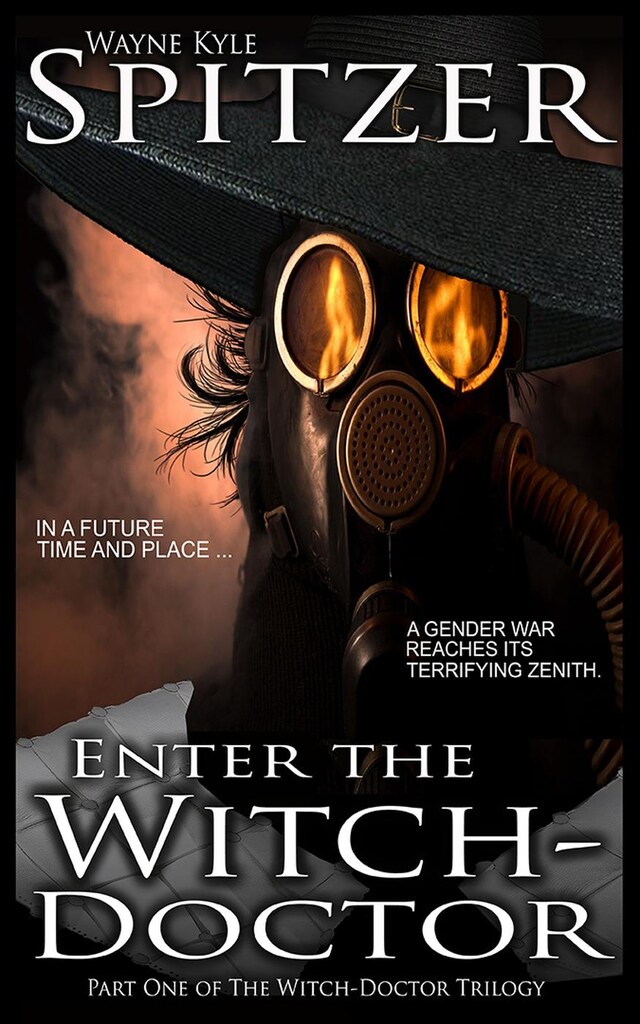
Enter the Witch Doctor (The Witch Doctor Trilogy, #1)
Om bogen
They were the kind of musical notes men and woman once swayed to—even worshiped to—or so Jasper had told him, ground from an instrument called an “organ”—which had once been common, or so he’d said, but had vanished from the face of the world. So, too, were there cymbals, which echoed throughout the crew compartment of the War Wagon like tinsel—if tinsel could be said to have a sound—and mingled with the steely whispers of their muskets and tanks and other gear as the truck rocked and their harnesses held them fast.
“When a maaan loves a woman,” sang a hearty and soulful voice both inside and outside the compartment, and Jeremiah knew they were close, else the driver wouldn’t have cued the music, and when he scanned the other Witch Doctors, strapped in six to a bench in the wagon’s cramped confines, he knew that they knew it too. What was more, he knew that, however fearsome they looked in their black jumpsuits and white flame-retardant vests, their goggled respirators, their buckled hats—they were frightened, too.
But then the wagon ground to a halt and there was no time to be feel anything, much less fear, as Jeremiah unbuckled and piled out with the others. And yet, as he paused momentarily to take in the building—a ramshackle six-story brownstone which looked as though it had been built before the Betrayal, much less the Pogrom—a strange thing happened. He thought he heard a voice; not from without but entirely from within—a woman’s voice, a witch’s voice. And it said to him, as faintly as the cymbals at the start of the music, Why have you come for us, Witch-Doctor? And he found himself scanning the illuminated windows of the brownstone as if someone had perhaps shouted to him (rather than reaching directly into his mind), and saw behind one of the uppermost panes a figure so small and motionless that he might have thought it a piece of furniture, a lamp, perhaps, had it not slid to one side and vanished.
 Wayne Kyle Spitzer
Wayne Kyle Spitzer 13 Sider
13 Sider